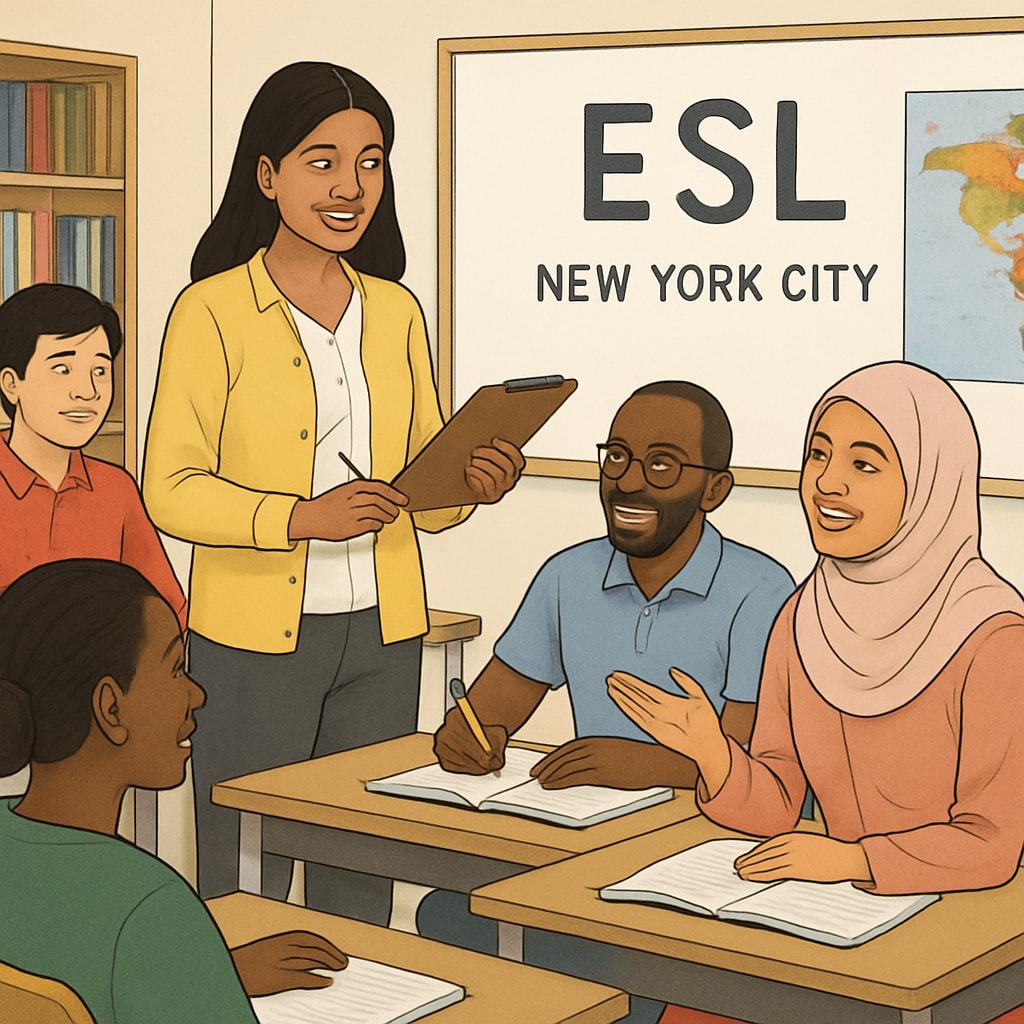Adult education plays a crucial role in helping immigrant adults adapt to Western culture by bridging gaps in foundational knowledge such as math, science, and English. For many immigrant learners, navigating a new society involves understanding not just the language but also the cultural norms embedded in everyday interactions. In this article, we will explore the challenges immigrant adults face, the significance of foundational knowledge, and provide practical guidance for finding suitable educational resources in New York City.
Challenges Immigrant Adults Face in Cultural Adaptation
Immigrant adults often encounter barriers when transitioning to life in Western cultures, as they may lack familiarity with key academic subjects or local customs. For example, basic numeracy skills are essential for managing finances, while proficiency in English enables effective communication in workplaces and daily life. Without these skills, immigrants could struggle to fully integrate into society, limiting their career opportunities and social connections.
In addition, cultural differences in education systems can be confusing. For instance, the Western emphasis on critical thinking and problem-solving may differ from the rote learning methods used in other countries. Overcoming these challenges requires access to educational programs tailored specifically for adult learners.

Why Foundational Knowledge in K12 Subjects Matters
Foundational knowledge in subjects like math, English, and science forms the backbone of cultural adaptation for immigrant adults. These skills empower individuals to function independently in areas such as managing finances, understanding contracts, and participating in community activities. For example:
- Math Skills: Understanding percentages is vital for calculating taxes or discounts.
- English Proficiency: Clear communication is necessary for job applications and everyday conversations.
- Science Literacy: Basic scientific understanding can aid in comprehending medical instructions or environmental issues.
Adult learners who master these skills gain confidence and develop a deeper connection with their new community. In addition, foundational knowledge serves as a stepping stone for further education or vocational training.
Finding Adult Education Resources in New York City
New York City offers a wealth of resources designed to help immigrant adults build foundational knowledge and adapt to Western culture. Below are some recommendations:
- NYC Adult Learning Centers: Operated by the New York Public Library, these centers provide free classes in English, math, and digital literacy. Visit NYPL Adult Learning for more information.
- Queens Library Adult Learning Program: Offers tailored courses for non-native English speakers and GED preparation. Learn more on their official website.
- Community Colleges: Institutions such as LaGuardia Community College in Queens provide affordable adult education programs, including English as a Second Language (ESL) and vocational training.
These programs often include flexible schedules and support services, making them accessible to working adults or parents.

Tips for Immigrant Adults Seeking Education Programs
Choosing the right program can be overwhelming, but these tips can simplify the process:
- Assess Your Needs: Determine whether you need basic math, English language skills, or vocational training.
- Start Small: Enroll in beginner-level classes to build confidence gradually.
- Utilize Free Resources: Libraries and community centers often provide free or low-cost classes.
- Network: Connect with other learners to share experiences and recommendations.
By taking these steps, immigrant adults can find programs that align with their goals and schedules, ensuring a successful educational journey.
In conclusion, adult education is a powerful tool for immigrant adults seeking cultural adaptation and independence. Foundational knowledge in subjects like math and English not only improves practical skills but also fosters a sense of belonging in a new society. For those in New York City, the abundance of resources ensures that every learner has access to opportunities for growth and integration.
Readability guidance: Use concise paragraphs and lists to summarize key points. Ensure transitions like “for example” and “in addition” are evenly distributed throughout the text. Keep sentence length and complexity balanced for clarity.


